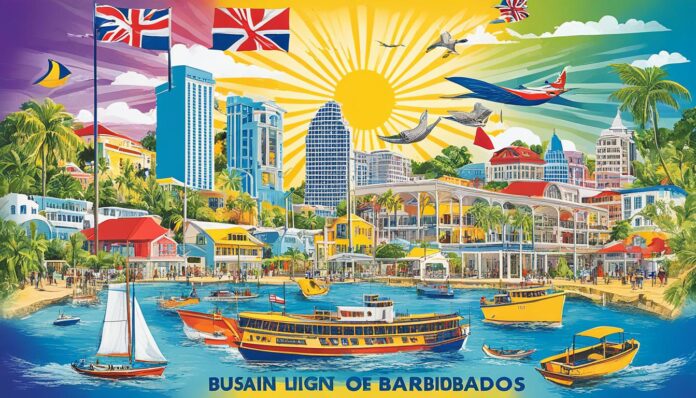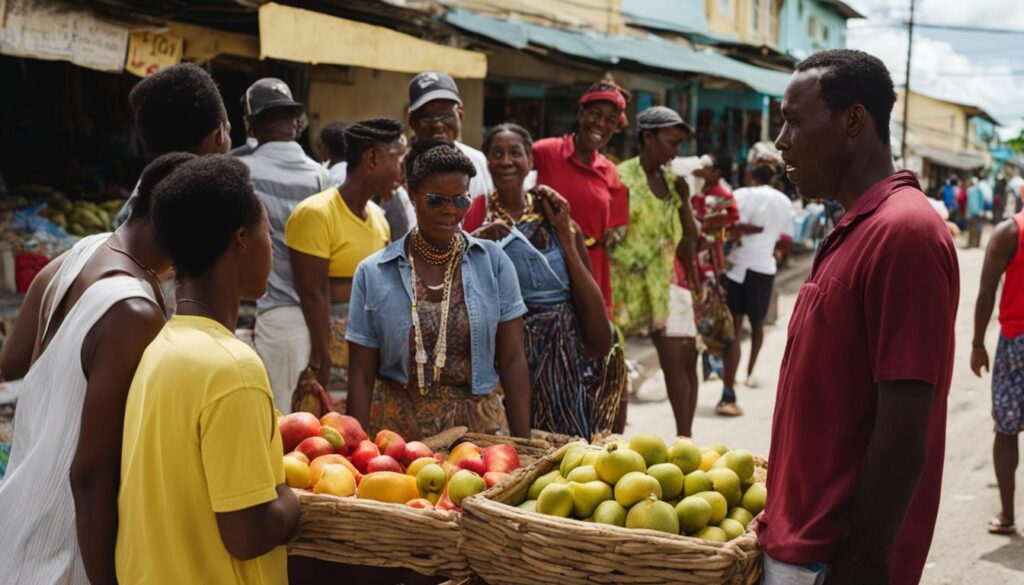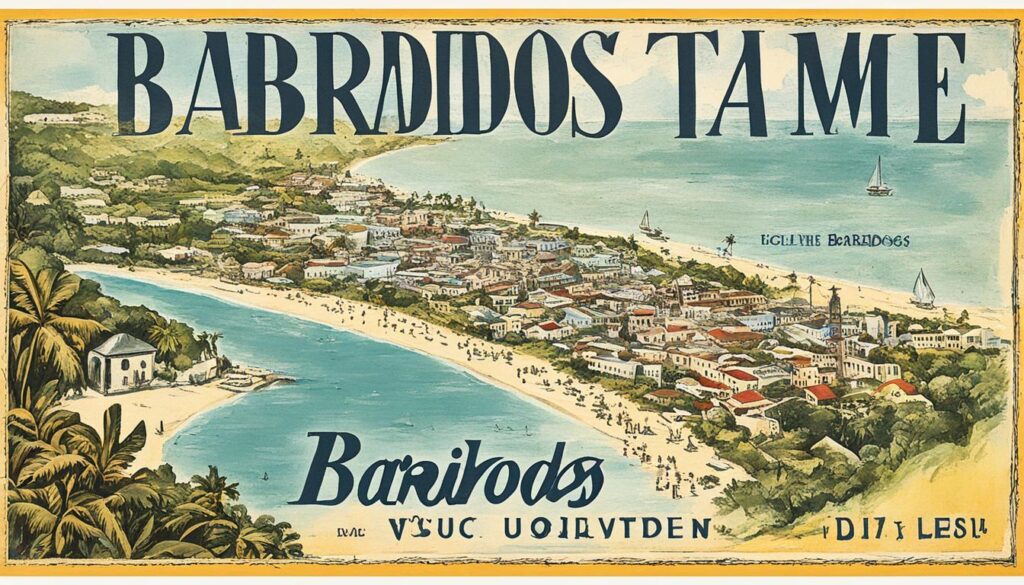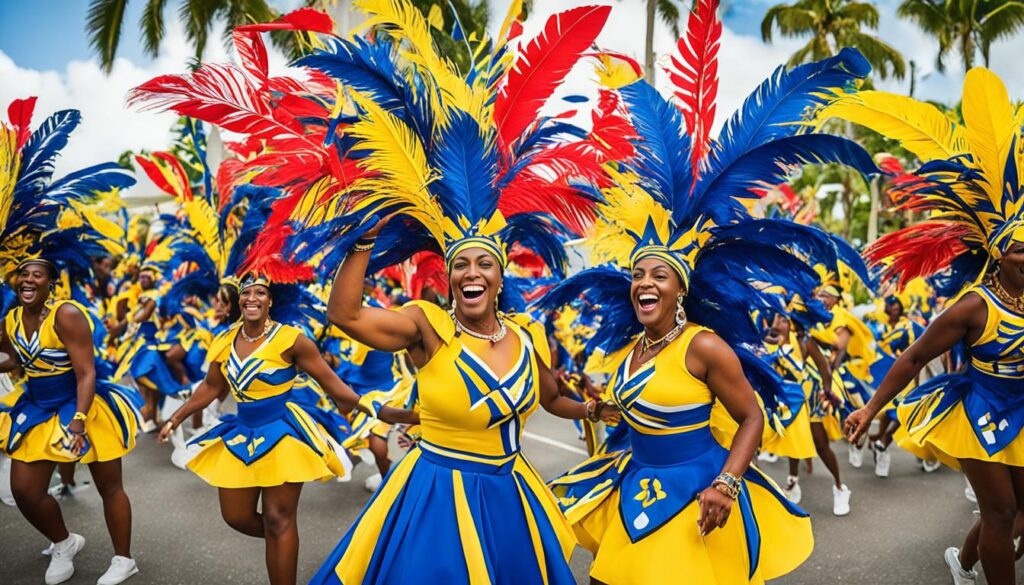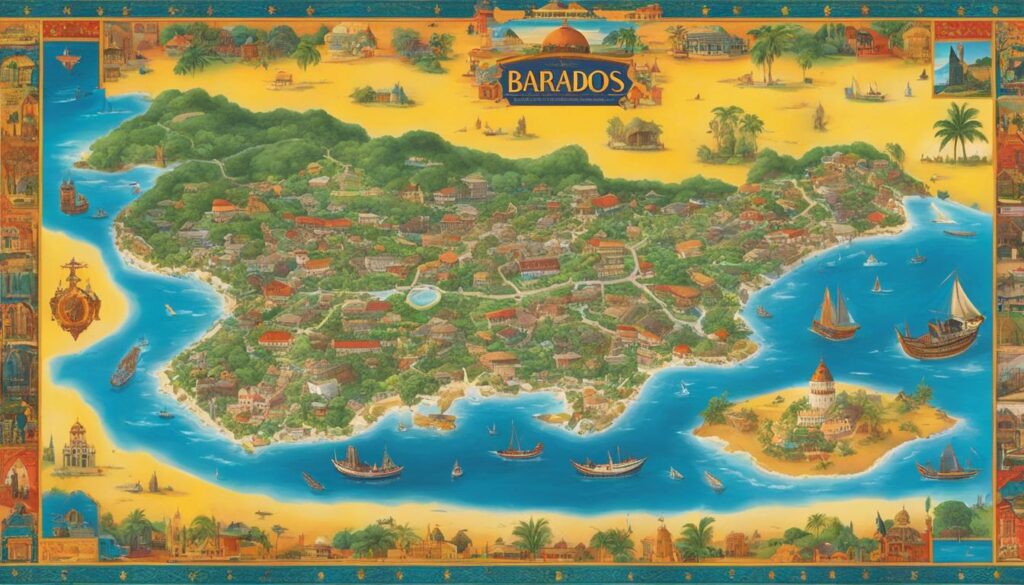Have you ever wondered how the English language in Barbados differs from standard English? Or why Barbadian English is considered a unique dialect? Join us on a linguistic journey as we explore the fascinating world of the English language in Barbados, uncovering the dialects, usage, and cultural significance that make it distinct.
From its roots in English colonization to its evolution through centuries of language contact, the English spoken in Barbados, known as Barbadian English or Bajan, has developed its own unique characteristics that set it apart from other English-speaking regions.
Get ready to dive into the rich tapestry of Barbados as we unravel the diversity of dialects, delve into everyday language usage, and explore the cultural and historical influences that have shaped the English language in this vibrant Caribbean nation.
The Barbados Dialects
Barbados is renowned for its rich linguistic heritage, boasting a diverse range of dialects that have evolved over centuries. The unique features of these dialects, collectively known as Barbadian English, offer fascinating insights into the linguistic landscape of the English-speaking Caribbean.
Barbadian English, often referred to as Bajan, is distinct in its pronunciation, vocabulary, and grammar. It reflects the historical and cultural influences that have shaped the island’s language. While English serves as the official language of Barbados, the local dialects add a distinct flavor to everyday communication.
Barbadian English shares similarities with other English dialects in the Caribbean, such as Jamaican Patois and Trinidadian Creole. These dialects have emerged as a result of the complex history of the region, influenced by African, Creole, and Indigenous languages. Despite these similarities, each dialect has its own unique characteristics that set it apart.
“Barbadian English is a testament to the island’s vibrant cultural tapestry, blending elements of African, British, and Caribbean influences. Its distinctiveness lies in its rhythmic intonation and colorful expressions.”
Barbados’ position as a leading tourist destination has resulted in increased exposure to international English variants. This exposure, combined with the influence of popular media, has led to the evolution of the local dialects, with younger generations incorporating elements of global English into their speech patterns.
Let’s take a closer look at the distinct features of Barbadian English:
- Pronunciation: Barbadian English often features longer vowels and softer consonants compared to standard English. The rhythm of speech is distinct, with a melodic quality that reflects the island’s musical heritage.
- Vocabulary: The lexicon of Barbadian English includes unique expressions and idioms that reflect the island’s cultural traditions and local experiences. These words and phrases are an integral part of the Barbadian identity and contribute to the colorful nature of the dialect.
- Grammar: Barbadian English exhibits variations in grammar, such as the omission of articles (“de” instead of “the”) and the use of double negatives (“I ain’t got none”). These grammatical nuances give the dialect its own charm and character.
The distinctiveness and charm of the Barbadian dialects can be heard in various forms of cultural expression, including music, storytelling, and literature. Through these mediums, the essence of Barbadian identity is captured, celebrated, and shared.
Usage and Vocabulary in Barbados
When it comes to everyday language usage in Barbados, Barbadian English reigns supreme. As the primary language spoken on the island, it reflects the unique cultural identity and heritage of the Barbadian people. Let’s explore some of the key aspects of language usage and vocabulary that you’ll encounter in Barbados.
Vibrant and Expressive Vocabulary
Barbadians have a rich vocabulary that blends standard English with local expressions and dialects. This fusion of words and phrases creates a vibrant and expressive language unique to the island. From colloquialisms like “liming” (hanging out) and “sweet fuh days” (extremely enjoyable) to food-related terms like “cou-cou” (a cornmeal dish) and “flying fish” (a local delicacy), the Barbadian vocabulary reflects the island’s history, traditions, and everyday life.
It’s important to note that language usage in Barbados can vary depending on different factors, such as age, social status, and region. Slang and informal expressions are commonly used among friends and family, while more formal English is prevalent in professional settings and education.
Role of Language Education
Language education plays a crucial role in preserving the rich linguistic heritage of Barbados and promoting English proficiency. English is taught as the official language in schools, with an emphasis on grammar, vocabulary, and effective communication skills.
Language education in Barbados aims to equip students with the necessary linguistic tools to succeed in various fields and sectors. It also fosters a deep understanding and appreciation of the Barbadian dialects and their cultural significance.
The inclusion of regional literature and works by Barbadian authors in the curriculum further enhances language education and encourages students to embrace their unique linguistic heritage.
“Language is not just a means of communication; it’s a defining characteristic of a culture. By preserving and promoting our linguistic heritage, we ensure that our identity as Barbadians remains strong.”
Language education initiatives in Barbados also extend beyond the classroom. Cultural organizations, community centers, and libraries provide resources for language learning, workshops, and events that celebrate the island’s vibrant language and cultural traditions.
Next, we’ll dive into the historical context that shaped the English language in Barbados, exploring the influences of colonization, slavery, and migration on the island’s linguistic heritage.
Historical Context
Diving into the historical context is crucial for understanding the development of the English language in Barbados. The influences of colonization, slavery, and migration have greatly shaped the linguistic landscape of the island.
Barbados, an island in the English-speaking Caribbean, has a complex language history that reflects its rich colonial past. From the arrival of English colonizers in the 17th century to the subsequent introduction of enslaved Africans, the island’s language underwent significant transformation.
“The language of a nation is the key to its soul.” – Unknown
The English language became the dominant language during the colonial rule, primarily due to the influence of the British Empire. The slave trade brought Africans who spoke various languages and dialects, resulting in the emergence of Creole languages that combined African grammatical structures with English vocabulary.
Over time, the intermingling of English, African languages, and dialects created a distinct linguistic identity in Barbados known as Barbadian English or Bajan. This unique blend of languages and cultures shaped the everyday speech of the Barbadian people.
| Event | Influence on Language |
|---|---|
| Colonization by the British | Introduction and dominance of the English language |
| The transatlantic slave trade | Introduction and influence of African languages and Creole |
| Migration and globalization | Incorporation of new words and expressions into the Barbadian English vocabulary |
Barbados’ linguistic heritage is a testament to its diverse history and the resilience of its people. The evolution of the English language in Barbados highlights the cultural richness of the island and its connection to the wider English-speaking Caribbean.
English as a Second Language in Barbados
As a country where English is the official language, Barbados recognizes the importance of English language education for non-native speakers. With a growing emphasis on global connectivity and the need for effective communication, language acquisition programs play a crucial role in promoting English proficiency among individuals whose native language is not English.
To facilitate language learning and enhance fluency, Barbados offers a variety of language acquisition programs catering to different age groups and proficiency levels. These programs are designed to develop essential language skills, including reading, writing, speaking, and listening. They provide learners with the necessary tools and resources to navigate various academic, professional, and social situations in English.
English proficiency assessments, such as internationally recognized examinations like the TOEFL and IELTS, are also conducted in Barbados. These assessments provide individuals with a standardized measure of their English language proficiency, which is valuable for academic and professional purposes.
Additionally, there are initiatives in place to foster language skills among non-native English speakers in Barbados. These initiatives encompass language exchange programs, cultural immersion experiences, and community-based language learning activities. Such endeavors promote linguistic diversity and facilitate cross-cultural understanding.
“Language is the key that unlocks the door to a world of opportunities and connections. By empowering individuals with English language skills, Barbados opens up pathways to academic success, professional growth, and intercultural exchange.”
Language education in Barbados recognizes the significance of English as a second language and aims to equip individuals with the necessary language skills to thrive in multicultural and global settings.
With this understanding, let’s explore the impact of the English language on Barbadian society through the lens of its cultural significance in the following section.
Language Acquisition Programs
In Barbados, a variety of language acquisition programs are available to cater to different learners’ needs. These programs focus on developing essential language skills, such as reading, writing, speaking, and listening. Whether for academic, professional, or personal purposes, these programs offer learners the opportunity to enhance their English proficiency and overcome any language barriers they may face.
Here is an overview of some of the language acquisition programs available in Barbados:
| Program | Description |
|---|---|
| English as a Second Language (ESL) Courses | Designed for non-native English speakers, ESL courses provide a comprehensive curriculum to improve language skills in various contexts. |
| Intensive English Programs | Intensive English programs offer immersive language learning experiences to accelerate language acquisition and fluency. |
| English for Specific Purposes (ESP) | ESP programs cater to individuals aiming to enhance their English proficiency for specific fields, such as business, medicine, or tourism. |
| English Conversation Clubs | Conversation clubs provide a relaxed and informal setting for language learners to practice their speaking and listening skills. |
These programs are complemented by English proficiency assessments, which measure an individual’s language proficiency level and offer recognized certifications. By participating in these language acquisition programs, individuals have the opportunity to develop their English language skills and enhance their prospects in academia, employment, and interpersonal communication.
Cultural Significance
The English language holds immense cultural significance in Barbados, playing a pivotal role in shaping the island’s traditions, customs, and identity. The linguistic heritage of Barbados is deeply intertwined with its rich cultural tapestry, reflecting the island’s history and unique blend of influences.
Language serves as a powerful tool for preserving and transmitting cultural values from one generation to another. In Barbados, the English language acts as a vessel through which the island’s stories, folklore, and oral traditions are passed down. It serves as a means of connection and unity among Barbadians, fostering a shared sense of identity.
Barbadian English, with its distinct linguistic features and expressions, encapsulates the essence of the island’s culture. The language reflects the warmth, vibrancy, and hospitality of the Barbadian people. From the rhythmic cadence of speech to the use of localized vocabulary and idiomatic phrases, Barbadian English captures the unique spirit of the island.
Moreover, the English language in Barbados is deeply influenced by the African, Creole, and Indigenous languages that have shaped the island’s history. This linguistic fusion creates a dynamic and multicultural linguistic landscape, further enhancing the cultural significance of the language.
“Language is the road map of a culture. It tells you where its people come from and where they are going.” – Rita Mae Brown
The English language serves as a bridge between Barbados and the wider English-speaking Caribbean. It facilitates communication and cultural exchange among nations in the region, fostering a sense of shared identity and unity.
To truly understand and appreciate the rich cultural heritage of Barbados, one must explore the language and how it integrates with the island’s traditions. Language not only reflects the unique Barbadian culture but also plays a vital role in preserving and perpetuating it for future generations to cherish.
| English Language in Barbados: Cultural Significance |
|---|
| • Serves as a vessel for preserving and transmitting cultural values. |
| • Reflects the warmth, vibrancy, and hospitality of the Barbadian people. |
| • Captures the unique spirit and identity of the island. |
| • Influenced by African, Creole, and Indigenous languages, creating a multicultural linguistic landscape. |
| • Facilitates communication and cultural exchange in the English-speaking Caribbean. |
Language Influence in Barbados
Barbados, known for its vibrant culture and rich linguistic heritage, has a fascinating history of language influence. As an English-speaking country, the English language in Barbados has been shaped by various linguistic sources, including African languages, Creole, and Indigenous languages.
The influence of African languages is particularly notable in the vocabulary of Barbadian English. Many words and expressions used in everyday conversations have roots in West African languages brought over by enslaved Africans during colonization. This rich linguistic fusion adds depth and vibrancy to the Barbadian dialect.
Creole, a language that emerged as a result of African slaves’ interactions with European colonizers, also plays a significant role in shaping Barbadian English. The Creole influence is evident in the pronunciation and grammar of the dialect, giving it a distinct flavor that sets it apart from standard English.
Indigenous languages, such as the Arawak and Carib languages, have left a lasting impact on the English language in Barbados. While these languages are no longer spoken, their influence can be seen in the names of places, flora, and fauna throughout the island.
“The linguistic diversity in Barbados reflects the island’s rich history and cultural heritage. The various influences on the English language highlight the resilience and adaptability of the Barbadian people.”
The language influence in Barbados is a testament to the country’s multicultural tapestry and the importance of preserving its linguistic heritage. It serves as a reminder of the complex history that has shaped the Barbadian identity and forms an integral part of the unique Barbadian English dialect.
In the next section, we will explore the efforts to preserve and promote the unique dialects and linguistic heritage of Barbados.
Image:
Language Preservation Efforts
In Barbados, there are dedicated efforts to preserve and promote the unique dialects and linguistic heritage of the island. Various initiatives, organizations, and projects have been established to document, teach, and revitalize the Barbadian dialects.
One such organization is the Barbados Language Centre, which plays a crucial role in language education in Barbados. It aims to preserve and promote the local dialects by offering courses and workshops on Barbadian English. The center not only focuses on language education but also highlights the cultural significance and historical context of the dialects.
“We believe that language is a fundamental aspect of our identity as Barbadians. By preserving and promoting our dialects, we preserve a part of our history and heritage.” – The Barbados Language Centre
Additionally, a number of research projects and studies are underway to better understand and document the various dialects spoken in Barbados. Linguists and language scholars are working diligently to capture the nuances and intricacies of these dialects, ensuring their preservation for future generations.
Moreover, community organizations actively engage in language revitalization efforts. They organize community events, cultural festivals, and language workshops to raise awareness about the importance of preserving the Barbadian dialects.
Key Initiatives in Language Preservation
- The Barbados Language Centre
- Barbados Dialect Documentation Project
- Community Language Revitalization Programs
- Barbadian Language Preservation Society
To further promote language preservation, the Barbados government has implemented policies that recognize the value of preserving local dialects. These policies support the inclusion of Barbadian English in educational curricula and emphasize the cultural significance of the dialects.
Through these collective efforts, Barbados continues to safeguard and celebrate its unique dialects, ensuring that future generations can embrace and appreciate the linguistic heritage of the island.
Language in Contemporary Barbadian Society
Gaining insights into how the English language is used in modern-day Barbadian society reveals its prominent presence in various aspects of everyday life. Whether it’s through literature, music, media, or popular culture, English remains a vital tool for communication and expression in Barbados.
Barbadian English, with its unique blend of British, African, and Creole influences, lends itself to the vibrant cultural landscape of the island. This dynamic interplay of linguistic elements has contributed to the evolution and adaptation of the English language in Barbados.
One notable aspect of the language’s contemporary usage is its role in literature. Barbadian authors, such as George Lamming and Austin Clarke, have garnered international acclaim for their works, which often explore themes of identity, history, and social issues through the lens of Barbadian English.
“The language we speak is our soul, our way of existing, our life force.” – Austin Clarke
The language also finds expression in the realm of music. From calypso to reggae, soca to dancehall, Barbadian artists like Rihanna and Mighty Gabby have captured global audiences with their lyrics delivered in Barbadian English. The authenticity and rich cultural context conveyed through the language add depth and resonance to their music.
In the media landscape, Barbadian English holds a strong presence, with local television, radio stations, and online platforms featuring programs and content that resonate with the Barbadian dialect. This media representation further reinforces the language’s significance and fosters a sense of cultural pride among Barbadians.
The adaptability and versatility of the English language in Barbadian society are evident in its influence on popular culture. Barbadian English has permeated various spheres, including fashion, sports, culinary arts, and entertainment. The language serves as a vehicle for expressing cultural identity, humor, and shared experiences within the community.
The Influence of Popular Barbadian Expressions:
| Barbadian Expression | Meaning | Example Sentence |
|---|---|---|
| Liming | Hanging out, relaxing | “Let’s go liming at the beach this weekend.” |
| Zaferoon | Peach | “I bought some juicy zaferoons from the market.” |
| Lickrish | Greedy, indulgent | “She couldn’t resist the lickrish chocolate cake.” |
These expressions exemplify the colorful and distinctive nature of the Barbadian dialect, which continues to shape the language landscape in modern-day Barbados.
As Barbadian society embraces the digital age, English remains the dominant language in online platforms and social media. The language serves as a bridge, connecting Barbadians locally and internationally, and allows for the sharing of experiences, ideas, and stories.
In conclusion, the English language in contemporary Barbadian society is a vital means of communication and a reflection of the island’s rich cultural heritage. Its presence in literature, music, media, and popular culture underscores the adaptability, creativity, and resilience of Barbadians.
Conclusion
In conclusion, the English language in Barbados is a fascinating blend of dialects and usage that reflects the cultural and linguistic diversity of the island. Barbadian English, with its unique characteristics and vocabulary, stands as a testament to the rich linguistic heritage of the country. The influence of colonization, slavery, and migration has shaped the language over centuries, giving rise to distinct Barbados dialects that set it apart from other English-speaking Caribbean nations.
Language education plays a crucial role in preserving and promoting the English language in Barbados. Efforts to document and revitalize the Barbadian dialects are vital in ensuring their survival for future generations. Moreover, the cultural significance of language in Barbadian society cannot be overstated. Language serves as a powerful marker of identity, reflecting the traditions, customs, and values of the island.
As the English language continues to evolve and adapt to contemporary influences, it remains an essential tool of communication and expression in Barbados. Its presence can be seen in various aspects of popular culture, including literature, music, and media. English in Barbados is a testament to the island’s rich history and vibrant culture, making it a fascinating linguistic landscape worth exploring.




























